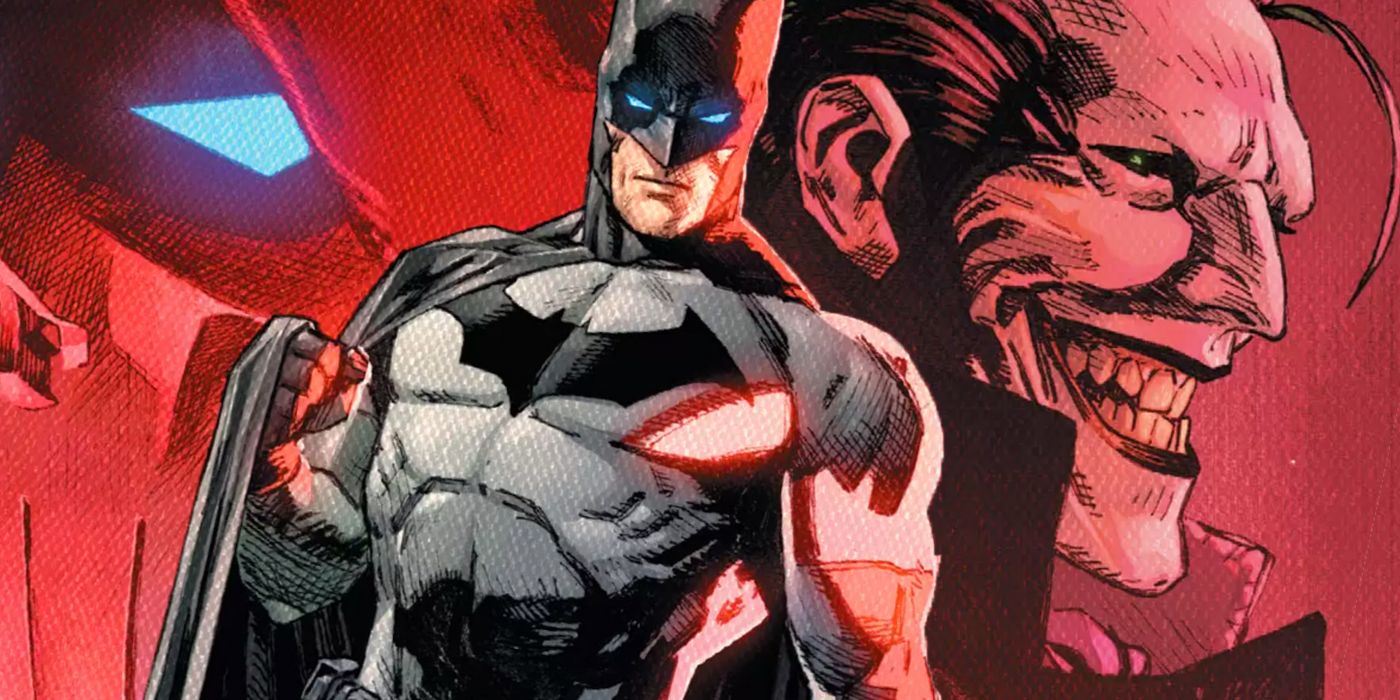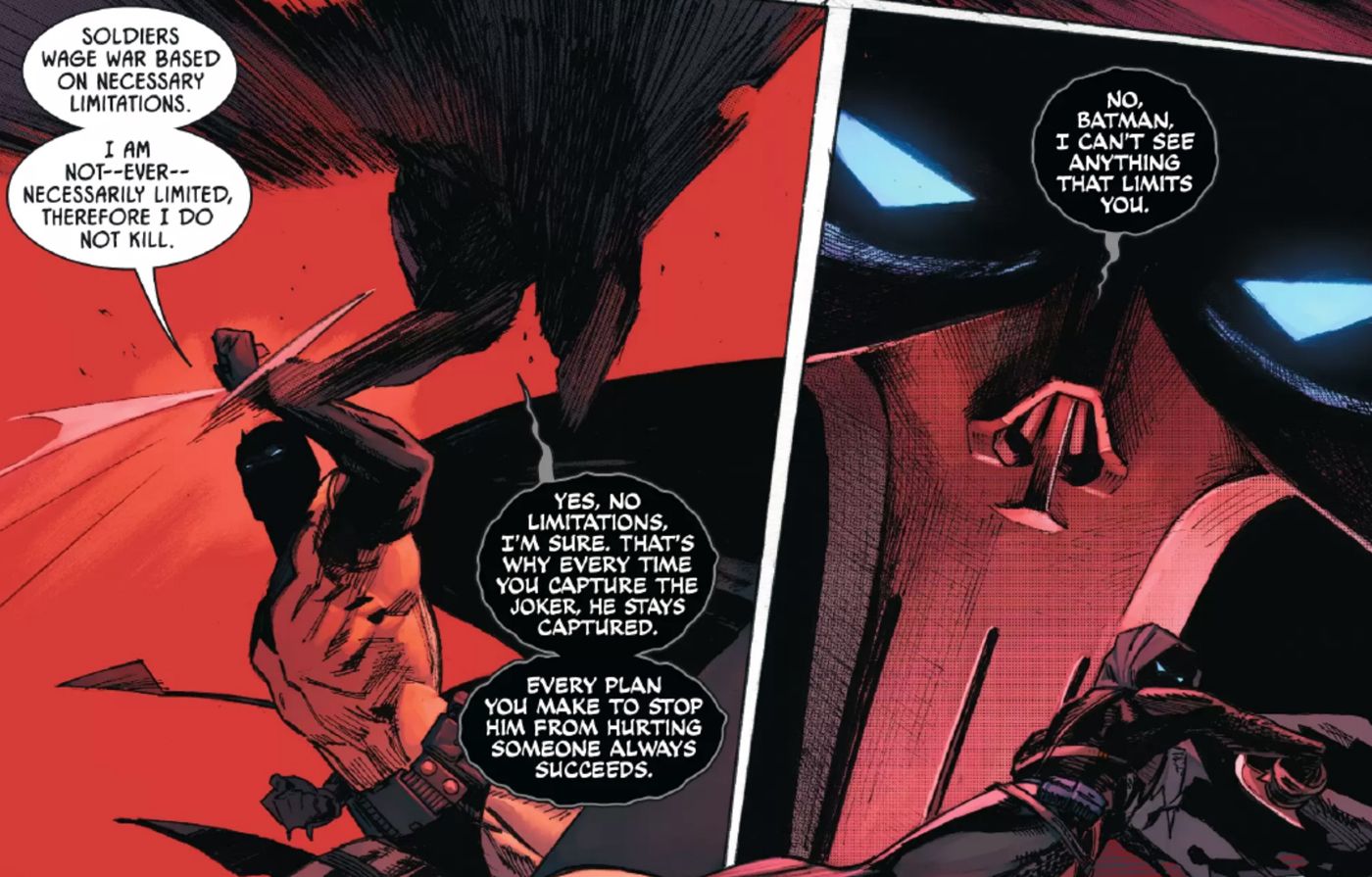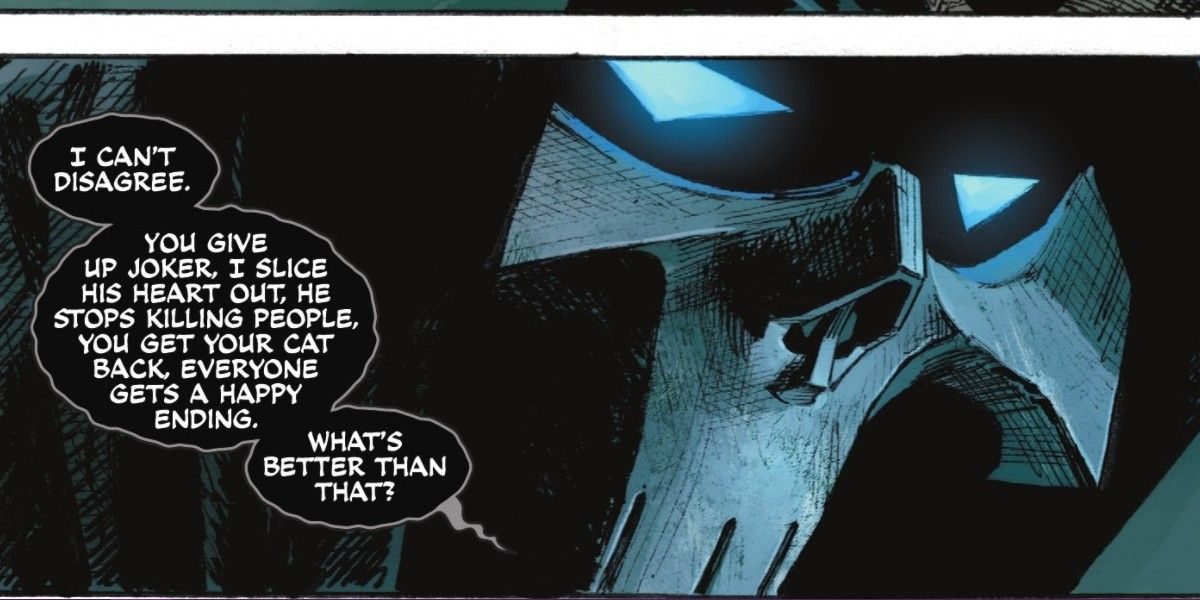WARNING: The following contains spoilers for Batman/Catwoman #6, available now from DC Comics
Batman's infamous no-killing rule is always referenced as something to strive for, something that clearly elevates him above his peers. Batman believes it's the one trait that separates him from other criminals and vigilantes roaming around Gotham City. While Batman is dueling Phantasm on the Gotham rooftops in Batman/Catwoman #6 by Tom King, Clay Mann, Tomeu Morey, and Clayton Cowles, he's forced to litigate his stance on allowing Joker to live. However, His explanation seems to be based on flawed logic, and it seems like Phantasm poked some clear holes in his infamously granite moral compass.
Phantasm is on a mission to avenge her son, who was murdered by the Joker. But to get to Joker, she has to go through Batman, who is still against killing the Joker. Phantasm tells Batman that she won't put Joker's death on his conscience and will permanently remove the Joker's chaos from Gotham. When Batman refuses, Phantasm asks him why it's okay for soldiers in the military or police officers to kill in the name of protecting the innocent. As he says, Batman believes they have to kill because of "necessary limitations," but Batman says he's free of these limitations and therefore he doesn't have the right to end anyone's life.
Despite the superhuman amount of resources at the Dar Knight's disposal, this attitude speaks to a fundamental hubris in the Dark Knight, one that doesn't take his humanity into account.
Phantasm calls Batman's stance childish and wonders how a man who stands alongside gods can't even set aside his own ego to do some real good in the city. Although she's clearly the villain here, Phantasm does have a point. She's a widow who lost her son to the worst criminal in Gotham's history. Batman could have ended Joker's reign of terror countless times and it could have saved her son in the process. However, he didn't.
It's clear that Batman's "necessary limitations" argument is flawed because Batman is a mortal human, which is about as limiting as it gets in his line of work. This point is underscored earlier in the series when we see Bruce Wayne dying of cancer. Batman believes he doesn't kill because he's limitless, but he clearly isn't. If he was limitless, he could make exceptions for his no-kill rule, which is a limit Batman has clearly defined for himself.
This isn't the first time Batman's mercy for the Joker has been questioned or challenged. Even some of his most trusted confidants like the Red Hood and Catwoman could never convince him to take a life. Even when Joker kidnapped and tortured Jason Todd, something that almost made Batman put up the cape and cowl for good, he still wouldn't end Joker's life. Even after Bane killed Alfred with his bare hands, he still held firm on his famous rule. There's a good argument to be made that if he could have saved Alfred's life and Jason's soul if he would have ended the lives of their respective murderers.
Batman is convinced that if he kills the Joker he'll sink to his level and become something like him. Joker echoes this sentiment frequently while badgering Batman about their many similarities. If Batman really believed he was as limitless as he says he is, he wouldn't be so scared of losing himself so easily. Batman seems like he's cherry-picking ideas to justify his no-killing rule. Phantasm implies that Batman has failed to save lives for nothing more than protecting his ego and his pride, and she's not wrong in the least.



